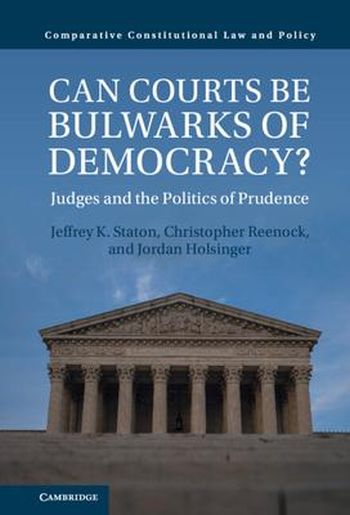
Liberal concepts of democracy envision courts as key institutions for the promotion and protection of democratic regimes. Yet social science scholarship suggests that courts are fundamentally constrained in ways that undermine their ability to do so. Recognizing these constraints, this book argues that courts can influence regime instability by affecting inter-elite conflict. They do so in three ways: by helping leaders credibly reveal their rationales for policy choices that may appear to violate legal rules; by encouraging leaders to less frequently make decisions that raise concerns about rule violations; and by encouraging the opposition to accept potential rule violations. Courts promote the prudent use of power in each of these approaches. This book evaluates the implications of this argument using a century of global data tracking judicial politics and democratic survival.